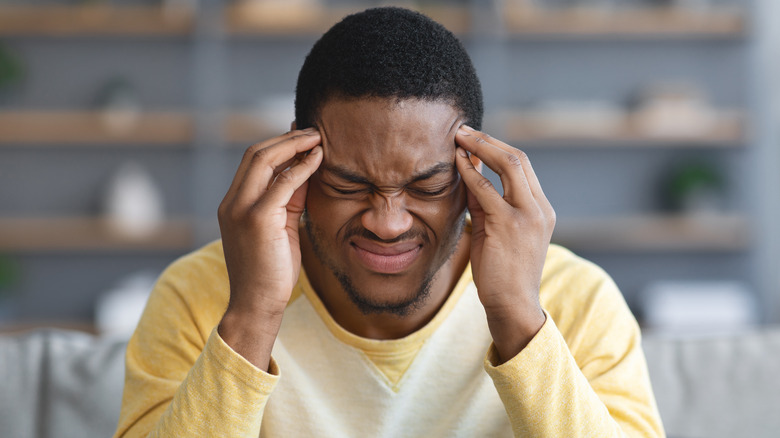The Connection Between Stress And Neck Pain Explained
Stress is one of life's few constants. Throughout time, all humans have faced some kind of stress or another. Today's stress, however, feels a little different than the stress our ancestors faced. It is constant, like a persistent grind that can wear down both mental and physical health. This is especially true in older people and people with health conditions, according to a 2005 paper published in the Annual Review of Clinical Psychology.
A more recent paper, published in 2007 in the Encyclopedia of Stress, found that almost 90% of doctor visits may be stress related. Experts arrived at this number after looking at symptoms often brought on by chronic stress such as hypertension (high blood pressure), insomnia, skin conditions, and fatigue, among others. Other symptoms, like muscle tension, are often dealt with at home, though it makes them no less common. And when those sort of symptoms get out of hand, they can lead to chronic pain that lands someone right back in the doctor's office.
Blame it on tension
Stress-related pain can strike just about anywhere. Most commonly, however, it strikes in the neck and back. This might not seem like the most intuitive place for stress pain to strike, but there's a good reason a stressful day leaves most people rubbing at their necks. As explained by UT Southwestern Medical Center, hunching over a desk, mobile device, or computer screen all day can cause muscle strain in the neck and shoulders.
It's not only the desk-bound that suffer from stress-related neck pain, however. The medical center goes on to explain that most people carry tension in their shoulders. This leads to tension in the neck as the muscles interact, leading to neck pain and headaches. Sleep Advisor suggests countering this habit by taking up yoga or another relaxing activity that encourages movement, exercising, or getting a gentle massage. And though it's not always possible, reducing stress at the source can lead to an improvement of stress-related symptoms.


